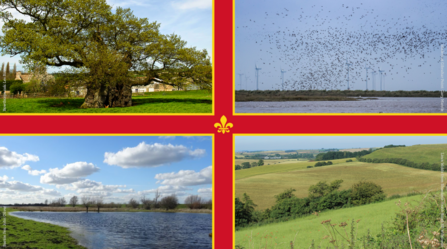From driving a robust Local Nature Recovery Strategy (LNRS)[1] and tackling climate change to ensuring fair access to green spaces, we envision a Greater Lincolnshire where nature thrives, communities flourish, and everyone benefits from a sustainable future. We urge all mayoral candidates to champion this vision, turning ambition into action for a greener, healthier tomorrow.
Lincolnshire is more than just productive farmland and historic settlements — it is home to extraordinary habitats of national and international significance. Our coast, estuaries, and hinterland support thousands of migrating birds along the East Atlantic Flyway, a candidate for UNESCO World Heritage status. The Wash supports a thriving fishery and is the UK's most important estuary for wild birds. We boast globally rare chalk streams, dwindling yet diverse wetlands — including lakes, fens, and degraded peat soils — and species-rich but vanishing grasslands and meadows. Fragmented yet irreplaceable, our ancient woodlands remain vital, and our county is also home to some of the world’s most iconic trees, including Sir Isaac Newton’s legendary apple tree. These natural treasures make Lincolnshire unique and provide essential ecosystem services. Let’s cherish, protect, and restore them for generations to come.


